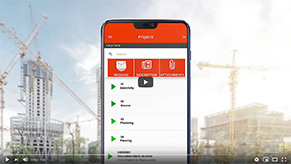
29 May, 2023 Mobile-Punch
What is the Best Project Management Software for Construction?
Construction project management software is an invaluable tool for construction professionals. It helps them stay organized and manage their projects…

29 May, 2023 Mobile-Punch
How To Save Money on Construction Staffing
Construction staffing can be a major expense for contractors, but it doesn't have to be. With the right tactics, contractors…



